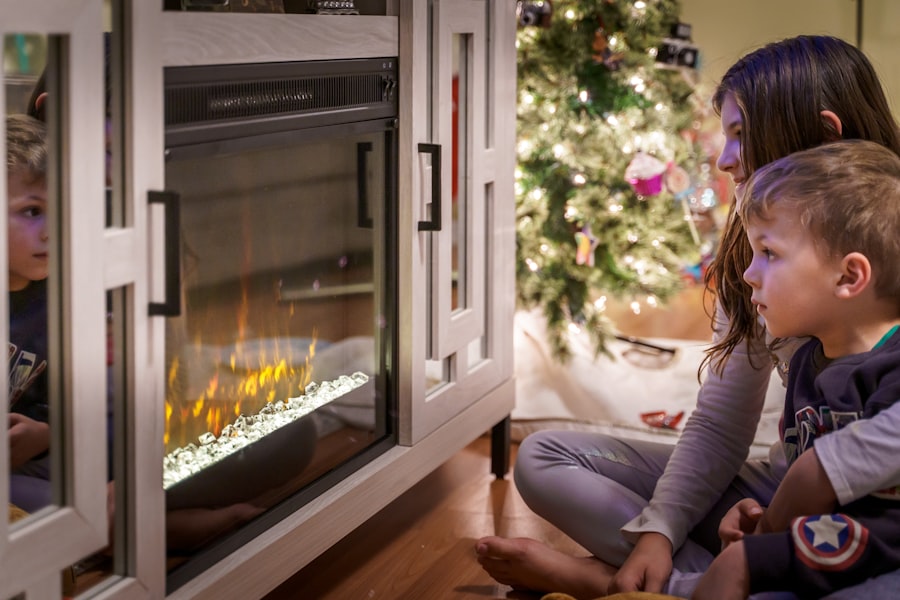As winter approaches, it is essential to prepare chicken coops for colder weather. Begin by thoroughly cleaning the coop to remove droppings, feathers, and dirt, which helps prevent disease and parasite spread. Inspect the structure for drafts and leaks, making necessary repairs to ensure proper insulation and waterproofing.
Consider adding extra insulation to walls and ceilings to maintain warmth. Verify that windows and doors are in good condition and can be securely closed to prevent cold air infiltration. Examine the outdoor area surrounding the coop.
Remove debris and overgrown vegetation that could shelter predators or pests. Add a layer of straw or wood shavings to the ground for insulation and to provide a dry surface for chickens. Ensure that outdoor water sources are insulated or heated to prevent freezing.
These preparatory measures help maintain chicken health and comfort during winter months.
Table of Contents
- 1 Providing adequate warmth for the chickens
- 2 Adjusting the feeding and watering routine
- 3 Protecting the chickens from frostbite
- 4 Maintaining good ventilation in the coop
- 5 Monitoring the chickens for signs of stress or illness
- 6 Planning for potential snow and ice hazards
- 7 FAQs
- 7.1 What are the key considerations for keeping chickens over winter?
- 7.2 How can I prepare my chicken coop for winter?
- 7.3 What should I feed my chickens during the winter months?
- 7.4 How can I prevent my chickens’ water from freezing?
- 7.5 What are some signs that my chickens are struggling with the cold?
Key Takeaways
- Clean and insulate the coop to prepare for winter
- Provide heat sources and adequate bedding for warmth
- Adjust feeding and watering routine to account for increased energy needs
- Protect chickens from frostbite with proper coop maintenance and monitoring
- Ensure good ventilation in the coop to prevent moisture buildup
- Monitor chickens for signs of stress or illness in cold weather
- Plan for potential snow and ice hazards to keep chickens safe
Providing adequate warmth for the chickens
Heat Sources for the Coop
One way to do this is by adding a heat source to the coop, such as a heat lamp or a heated pad. Make sure that any heat source you use is designed specifically for use in a chicken coop and is placed in a safe location where it won’t pose a fire hazard.
Insulation and Bedding
Additionally, consider adding extra bedding to the coop to help insulate it and provide a cozy nesting area for your chickens.
Nutrition for Winter
Another way to help keep your chickens warm is by providing them with plenty of high-energy food. During the winter, chickens need extra calories to help them maintain their body temperature, so consider adding some extra grains or seeds to their diet. You can also provide them with warm treats such as cooked vegetables or oatmeal to help warm them up from the inside out.
By providing your chickens with adequate warmth through heat sources, insulation, and high-energy food, you can help them stay healthy and comfortable during the winter months.
Adjusting the feeding and watering routine

In the winter, it’s important to adjust your chickens’ feeding and watering routine to account for the colder temperatures. Chickens need extra calories during the winter months to help them maintain their body temperature, so consider increasing their daily feed ration. You can also provide them with high-energy treats such as sunflower seeds or cracked corn to help them stay warm.
Additionally, make sure that their water source is kept from freezing by using a heated waterer or checking it frequently throughout the day. To prevent their water from freezing, consider using a heated waterer or checking their water source frequently throughout the day. You can also add some apple cider vinegar to their water to help prevent it from freezing as quickly.
Additionally, consider providing your chickens with warm water in the morning and evening to help them stay hydrated and warm. By adjusting your chickens’ feeding and watering routine to account for the colder temperatures, you can help ensure that they stay healthy and comfortable during the winter months.
Protecting the chickens from frostbite
Frostbite is a common concern for chickens during the winter months, especially on their combs, wattles, and feet. To protect your chickens from frostbite, start by making sure that their coop is well-insulated and free from drafts. You can also add extra bedding to their nesting boxes and roosting areas to provide additional insulation.
Additionally, consider applying a thin layer of petroleum jelly to your chickens’ combs and wattles to help protect them from frostbite. Another way to protect your chickens from frostbite is by providing them with plenty of space to move around and exercise. When chickens are active, they generate body heat which can help keep them warm and prevent frostbite.
Finally, consider adding some extra roosting bars or perches to their coop so that they can lift their feet off of the cold ground while they sleep. By taking these steps to protect your chickens from frostbite, you can help ensure that they stay healthy and comfortable during the winter months.
Maintaining good ventilation in the coop
While it’s important to keep your chicken coop well-insulated during the winter, it’s equally important to maintain good ventilation to prevent moisture buildup and respiratory issues. Start by checking that any vents in the coop are clear of debris and open to allow for proper airflow. You can also consider adding some adjustable vents or windows that can be opened during milder days and closed during colder nights.
Additionally, make sure that the bedding in the coop is kept clean and dry to prevent mold and mildew from forming. Consider adding some extra bedding material such as straw or wood shavings to help absorb moisture and provide a comfortable surface for your chickens. Finally, monitor the humidity levels in the coop using a hygrometer and make adjustments as needed to maintain a healthy environment for your chickens.
By maintaining good ventilation in the coop, you can help prevent respiratory issues and keep your chickens healthy during the winter months.
Monitoring the chickens for signs of stress or illness

Recognizing the Signs
Look out for changes in their behavior, such as lethargy, decreased appetite, or unusual vocalizations. Regularly inspect their combs, wattles, and feet for signs of frostbite or injury.
Taking Action
If you notice any signs of stress or illness, take prompt action to address the issue. Provide extra warmth, adjust their diet, or seek veterinary care if necessary. Another way to monitor their health is by observing their droppings for changes in color, consistency, or odor, which can be an early indicator of digestive issues or illness.
Extra Attention and Care
Spend some extra time with your chickens each day to observe their behavior and provide them with extra attention and care during the colder months. By monitoring your chickens for signs of stress or illness, you can help ensure they stay healthy and comfortable throughout the winter.
Planning for potential snow and ice hazards
During the winter months, it’s important to plan for potential snow and ice hazards that could affect your chickens’ safety and comfort. Start by clearing any snow or ice from around the coop and outdoor area to prevent it from accumulating and creating slippery surfaces. You can also consider adding some non-toxic ice melt or sand to pathways and walkways to provide better traction for your chickens.
Additionally, make sure that any outdoor water sources are kept from freezing by using a heated waterer or checking them frequently throughout the day. You can also consider providing your chickens with some extra shelter such as tarps or windbreaks to protect them from harsh winds and blowing snow. Finally, consider having a backup plan in place in case of power outages or severe weather that could affect your ability to care for your chickens.
By planning for potential snow and ice hazards, you can help ensure that your chickens stay safe and comfortable during the winter months. In conclusion, preparing your chicken coop for winter involves taking several important steps to ensure that your chickens stay healthy and comfortable during the colder months. By providing adequate warmth, adjusting their feeding and watering routine, protecting them from frostbite, maintaining good ventilation, monitoring their health, and planning for potential snow and ice hazards, you can help ensure that your chickens thrive even in cold weather conditions.
With proper care and attention, your chickens can continue to lay eggs and provide companionship throughout the winter months.
If you’re looking for tips on how to keep your chickens warm and safe during the winter months, you might want to check out this article on how to insulate a chicken coop. Insulating your coop can help regulate the temperature and keep your chickens comfortable during the colder months.
FAQs
What are the key considerations for keeping chickens over winter?
– Providing adequate shelter to protect chickens from cold temperatures and drafts
– Ensuring access to fresh water that doesn’t freeze
– Providing a balanced diet to help chickens maintain their body heat
– Monitoring for signs of illness or distress due to the cold
How can I prepare my chicken coop for winter?
– Insulate the coop to help retain heat
– Seal any drafts or gaps in the coop
– Use deep bedding to provide insulation and warmth
– Install a safe heat source if necessary, such as a heat lamp or heated waterer
What should I feed my chickens during the winter months?
– Provide a balanced diet that includes a mix of grains, protein, and fresh greens
– Consider increasing their protein intake to help them stay warm
– Offer warm, cooked foods to help raise their body temperature
How can I prevent my chickens’ water from freezing?
– Use a heated waterer to prevent water from freezing
– Check the waterer frequently and break up any ice that forms
– Consider using an insulated waterer or placing a heat source near the waterer
What are some signs that my chickens are struggling with the cold?
– Lethargy or decreased activity
– Puffed-up feathers to retain body heat
– Decreased egg production
– Signs of frostbite on combs, wattles, or feet
Meet Walter, the feathered-friend fanatic of Florida! Nestled in the sunshine state, Walter struts through life with his feathered companions, clucking his way to happiness. With a coop that’s fancier than a five-star hotel, he’s the Don Juan of the chicken world. When he’s not teaching his hens to do the cha-cha, you’ll find him in a heated debate with his prized rooster, Sir Clucks-a-Lot. Walter’s poultry passion is no yolk; he’s the sunny-side-up guy you never knew you needed in your flock of friends!







